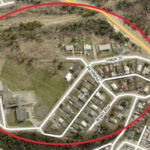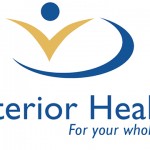Home »

Ktunaxa in on educational grant delivery from Interior Health
Interior Health’s Aboriginal Health program has awarded 16 educational grants to Aboriginal not-for-profit organizations and governments across the region to enhance the public health skill sets of aboriginal residents.
“Across the province the health status of Aboriginal people is improving but we still have a long way go,” said Minister of Aboriginal Relations and Reconciliation Mary Polak. “By working with Aboriginal stakeholders, and addressing their needs, we are ensuring care is being delivered in a culturally appropriate manner.”
“The goal of the IH Aboriginal Health Team is to work collaboratively with Aboriginal organizations and governments to improve the health of Aboriginal people within the region and I am pleased to see $200,000 in funding allocated to this important initiative,” said IH board chair Norman Embree.
Priority was given to grant applications that would have a broad impact on the public health of Aboriginal populations; training programs are expected to: have previously proven beneficial outcomes; have the support of, or be recognized by, public health officials; take a partnership approach and foster relationships with other Aboriginal organizations.
The educational grants, which each total no more than $20,000, will be used for a variety of programs including palliative care certificates, mental health first aid, suicide prevention training and substance abuse certification through the Justice Institute of B.C.
“By increasing capacity through educational opportunities the whole community benefits,” said Bradley Anderson, IH Aboriginal Health Acting Program Director. “Interior Health wanted this to be a grass roots initiative and asked applicants to tell us why they needed to build capacity in their community and how best that could be accomplished.”
“Okanagan Nation Transition Emergency House was given the opportunity to gain some training for two staff members that will enhance the skills that enable them to work with our Nation members,” said Pam Louis, Executive Director of Okanagan Nation Transition Emergency House. “This allows the team members to become more productive and qualified in the delivery of our most important service to women and children.”
There are 44,900 Aboriginal people living within the Interior Health region, representing 6.3% of the population, which includes 55 First Nation communities and 16,200 Métis people.
Aboriginal Health Educational Grant Recipients
IH East
Ktunaxa Nation Council – Mental Health First Aid 4 Communities
Lower Columbia All First Nations – Put Your Best Foot Forward
IH Central
Ki-Low-na Friendship Society – Relapse Prevention
Lower Similkameen Indian Band – Palliative Care Certificate
Upper Similkameen Band – Gift of Self Esteem
Okanagan Nation Transition Emergency House (ONTEH)/OK Nation Family Intervention & Services Society – Justice Institute of BC Substance Abuse Certification
Métis – Vernon & District – Group Facilitation Methods
Okanagan Indian Band – OKIB & Splat’sin Community Mental Health Well Being
IH West
Neskonlith Indian Band – Nechi Train the Trainer Certificate Program
Alkali Lake (Esk’etemc) – Mental Health/Addiction Wellness
Simpcw First Nation – Suicide Prevention Training
Conayt Friendship Center – Mental Health First Aid
Heskw’en’scutxe Health Services Society – Building Better Relationships
Secwepemc Health Director’s Hub-IHA Secwepemc Training Sessions: The Community Proactive Approach
Métis-Interior (Kamloops) – Signs of Safety-An Anti-Colonial Approach
Shuswap Training & Employment Program – Nechi Training Research & Health Promotion
Above map from: https://www.aqam.net/







